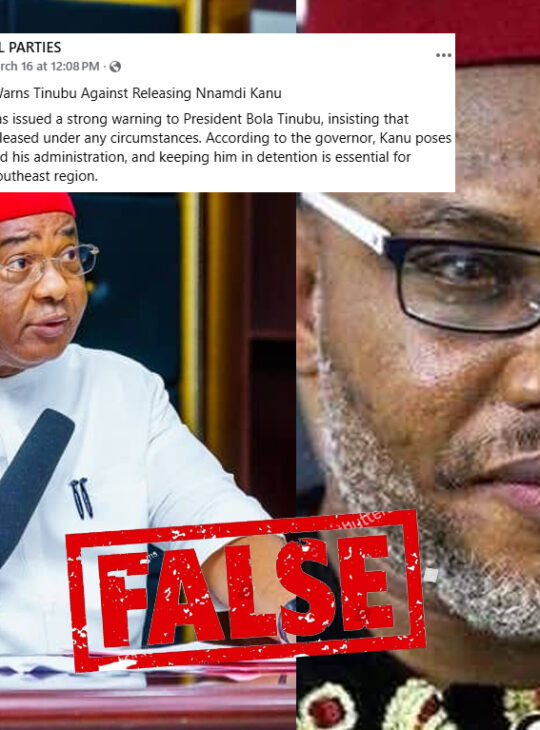Social media has become the world’s digital heartbeat, connecting millions across borders with just a click. Like a double-edged sword, it comes with its own challenge—the widespread misinformation and disinformation. The reliance on social media platforms such as Facebook, Whatsapp, and X as primary news sources makes it even easier to perpetuate information disorders, which moves at the speed of light.
Therein lies African countries enmeshed in this web, with foreign and domestic actors actively facilitating the spread of false information. A 2022 analysis by the Africa Center for Strategic Studies found 189 documented disinformation campaigns in Africa actively working to manipulate the continent’s information ecosystem. They use various tactics like hiring trolls, digital targeting firms, influencers, and bot accounts to deploy targeted misinformation and disinformation to sway public opinion or confuse and influence citizens’ decisions.
Various African countries like Nigeria, Angola, Gambia, Mali, and others are constantly experiencing the downside of misinformation and disinformation, with real life consequences on election outcomes and public trust in government. Meanwhile, information disorder campaigns in Africa are now increasingly being linked to government parastatals and administrations through aides, ministries, ministers and loyalists who are instrumental to spreading pro-government narratives, using social media platforms.
Guilty as charged?
Since time immemorial, governments have actively tried to control the news and media narratives in their respective countries. The Centre for Democracy and Development, CDD in its research on Mali’s fakenews ecosystem revealed that 4 out of the 5 most popular newspapers in the country are owned privately by politicians. In the 2021 report, the enablers of information disorder in Mali were politicians, cultural figures, non-state armed groups and terrorist organisations. Currently, the military junta supporters and pro-government supporters are both enablers of information disorder.
In Uganda, a network of fake social media accounts on Facebook, Instagram, and Twitter launched a coordinated disinformation campaign to bolster the ruling party, in the lead up to its 2021 election. Many of these accounts were directly managed by the Ugandan government through the Government Citizen Interaction Center (GCIC), operating under the Ministry of Information and Communications Technology and National Guidance. Additional accounts were linked to a spokesperson for Muhoozi Kainerugaba, a lieutenant general in the Ugandan military and the Chief of Defence Forces of the Uganda People’s Defence Forces (UPDF), and the son of President Museveni.
During Angola’s 2022 elections, fake accounts were used to boost pro-MPLA (People’s Movement for the Liberation of Angola) interactions on social media. These accounts also criticized the opposition, National Union for the Total Independence of Angola, UNITA, influencing online narratives during the campaign. Stanford Internet Observatory linked this activity to MindForce, an Israeli PR firm, which an employee confirmed worked for the Angolan government.
Amid rising concerns over misinformation, a British Broadcasting Corporation, BBC, investigation revealed that Nigerian political parties secretly paid social media influencers to spread disinformation against opponents ahead of the February 2023 elections. After the elections, President-elect Bola Ahmed Tinubu appointed Ajuri Ngelale as his Special Advisor on Media and Publicity. Prior to this role, Ngelale served as Senior Special Assistant on Public Affairs to former President Muhammadu Buhari, a tenure marked by a history of disseminating misinformation.
Also, the Special Adviser on Information and Strategy to Tinubu, Bayo Onanuga, shared a video on X, falsely claiming that Peter Obi, the Labour Party’s presidential candidate in Nigeria’s 2023 election, was “making a case” for online fraudsters. The clip shared by Onanuga deliberately omitted Obi’s clarifying statement, “I’m not encouraging anybody to steal, but we will deal with those who are stealing our common resources.” This is one out of several misinformation spread by Tinubu’s media team since he assumed office.
While delivering his speech at the 79th UN General Assembly on September 26, 2024, Gambian President Adama Barrow claimed that since 2017, his administration has not jailed any political prisoners, journalists, or human rights activists. However, opposition activists and journalists have been arrested under questionable circumstances, showing a misleading gap between the president’s statement and reality in Gambia.
Conclusion
The first step in addressing information disorder is streamlining the government’s communications team. The overlap of roles and functions often results in contradictory narratives, as demonstrated in Nigeria’s presidency media team. To prevent this, the government should clearly delineate the responsibilities of each member, designate a final authority on communications, and ensure that all public announcements undergo thorough verification before being released.
It is also quite obvious that African nations have to prioritise transparency and accountability in governance to enable a robust and independent media environment while establishing strong legal frameworks to regulate online disinformation without curbing free speech is essential. There is a need to further collaborate with social media platforms to identify and dismantle fake accounts and coordinated campaigns. Public awareness campaigns can educate citizens on identifying and resisting disinformation, promoting digital literacy as a critical tool in combating the spread of false narratives. Civil society organisations and fact-checking initiatives should receive support to independently verify claims made by public figures and institutions.
Moreso, it is the government’s responsibility to prioritise public safety and ensure that accurate information reaches the citizens at all times. It is unfair and disturbing that the people who represent and speak on behalf of the government do not shy away from spreading various forms of misinformation and disinformation that benefits them. The constant spread of misinformation and disinformation across African countries is a big problem that requires urgent attention and policies to nip it at the bud.



